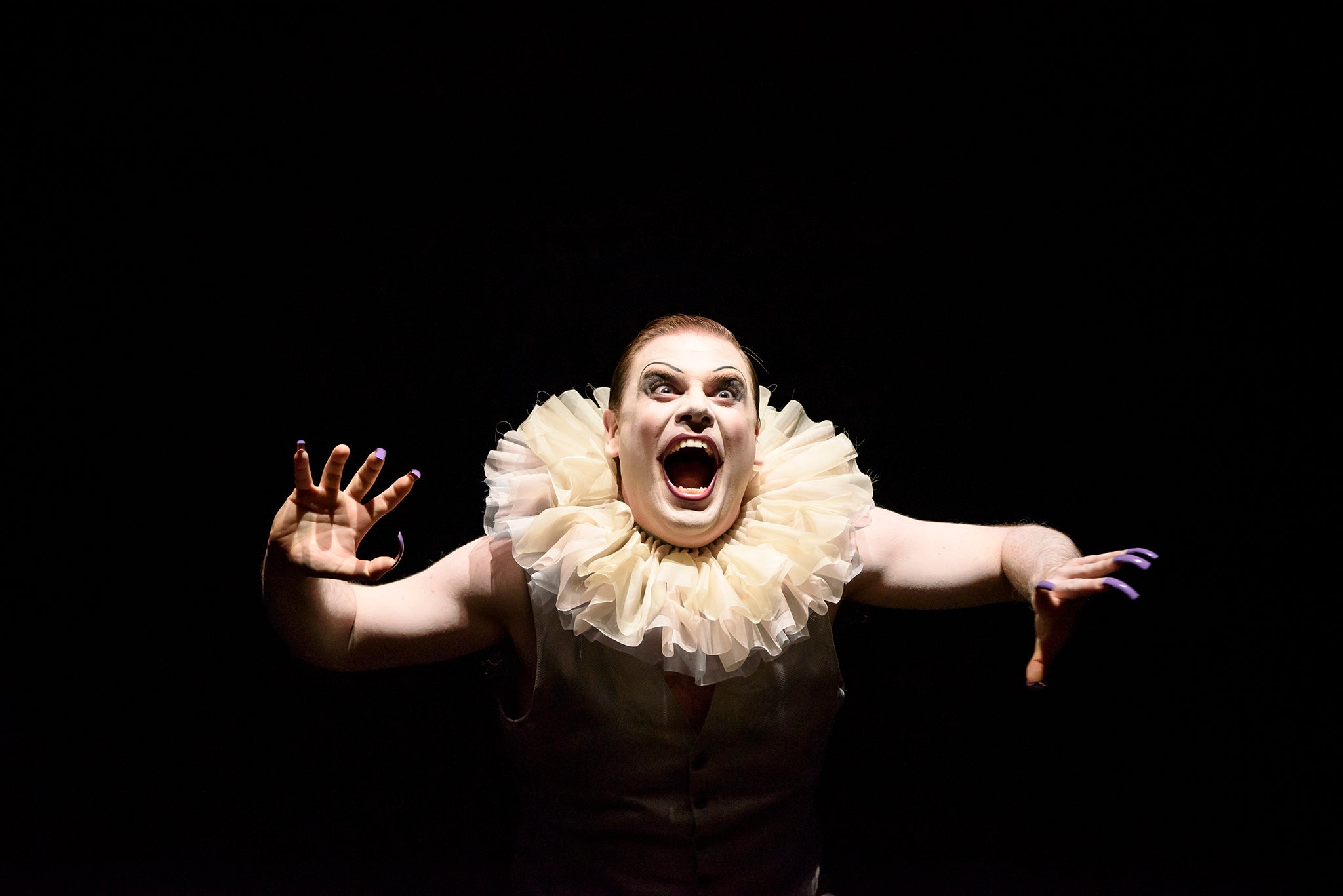Saul, Glyndebourne, opera review: A brilliant, landmark production
Glyndebourne Festival Opera, East Sussex

Director Barrie Kosky may not have worked much in Britain, but he does have form: for his ENO debut he turned Rameau’s exquisitely refined Castor et Pollux into a cross between a fight-club spectacular and a voyeuristic soft-porn romp. For his Glyndebourne debut he has chosen Saul, one of the magnificent oratorios which Handel wrote in the years preceding the Messiah.
One has to applaud his refusal to peddle the usual Jewish-history clichés with this tale of King David’s delivery of the Israelites. As he points out, there’s not a trace of Jewishness in it: its original audience would have been more likely to interpret it as a parable about regime-change and the fall of the House of Stuart. But he’s not buying into that either, because he doesn’t do history.
What he does buy into are its echoes of King Lear, which are so heavy he thinks they must have been intended. The family relationships are neatly paralleled, and, more importantly, so is the madness of the central figure: just as Lear loses his sanity, so does Saul, as envy of his young rival David drives him into terminal paranoia.
Katrin Lea Tag’s designs and Joachim Klein’s lighting ensure that this Saul takes place in a hyper-real dream-world. The first thing we see is a huge severed head – Goliath’s – which remains centre-stage throughout the entire first act like a memento mori. The stage is a sea of black ash – the remains of a battle – surrounded by banks of flowers among which the Israelites, in party versions of eighteenth-century costume, celebrate David’s victory.
The central triangle is quickly established: Jonathan (Paul Appleby) is so dazzled by the heroics of David (Iestyn Davies) that his father Saul (Christopher Purves) is driven mad with jealousy. And what Purves does with his part is extraordinary: by turns pathetic, murderous, and ridiculous, he becomes the real subject of the drama, but rather than being gawpers in Bedlam we are brought to an infinitely more compassionate place.
Kosky’s staging gets its messages across with a stunningly brilliant sequence of images, each one achieving perfect synergy with what conductor Ivor Bolton is achieving with the Orchestra of the Age of Enlightenment. There are Hockneyish echoes when the stage reduces itself to a box peopled with singing dolls which – while delivering exquisite polyphony – torment Saul with a plague of rats, and then belabour his undefended head with their fists; this chorus manages to transform itself repeatedly before our eyes, moving and breathing as one.
I won’t reveal the coup de theatre at the start of the second act: suffice it to say that it’s both witty and beautiful. Saul’s end is hauntingly strange, singing his aria ‘Wretch that I am’ while running in desperate circles through a blasted landscape, before being suckled (milkily) by the hermaphrodite Witch of Endor (sung by the Protean John Graham-Hall).
Musically this evening is well-nigh flawless. No praise too high for the singing of Davies, Appleby, and Purves; of Lucy Crowe and Sophie Bevan as Merab and Michal respectively, and of Benjamin Hullett as a cross between a clown and a soothsayer. Kosky has come good: this is a landmark production.
Subscribe to Independent Premium to bookmark this article
Want to bookmark your favourite articles and stories to read or reference later? Start your Independent Premium subscription today.

Join our commenting forum
Join thought-provoking conversations, follow other Independent readers and see their replies